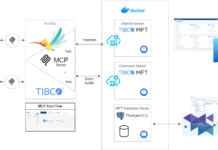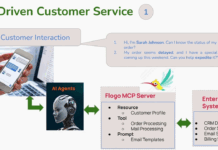
The annual TIBCO user conference (TUCON) is less than a month away and customers, partners, employees, media, agencies, and fans and followers are anticipating the four days packed with learning, exploring, discovering, and engaging. At TUCON 2013, you will get to know how organizations are using technology to reinvent themselves for the 21st century, overcome the forces influencing change, and deliver extreme value.
Barbro Oberg, integration platform manager for Scandinavian Airlines (SAS), attended TUCON 2012 and recounts her experience: “It was my first time to TUCON and I was overwhelmed by the quality of the conference—from speaker presentations to the buzz of innovation in the air. My schedule was well planned, as it began really good for me with the bicycle ride in Red Rock Canyon with Team TIBCO Women’s Pro Cycling. The weather was perfect in Las Vegas. I enjoyed the opportunity to meet peers across industries and nations, and exchange thoughts, learn what’s new, explore what’s ahead, and discover where TIBCO is progressing with their products.”
A Single Point of Issue Resolution
A typical airline carrier has many systems, each of which are dedicated to a particular airline operation. Today, travelers expect a single point of resolution when issues arise during their travel experience. If customer service informs a customer that his flight has been delayed or cancelled, the customer expects rebooking to be initiated at the same point. The rebooking process may be completed by the ticketing department, but the customer should not have to place a separate request with ticketing. Such expectations are the norm, and airlines cannot have their systems work in silos if they are to fulfill the needs of today’s travelers. The customer management and ticketing systems have to be integrated with real-time data if flight cancellation and rebooking are to happen through a single point of interaction with the customer.
Big Bang Integration from SAS
SAS began working with TIBCO more than a decade ago; recently, a multi–year project was initiated to build a modern airline system using established applications available in the market. The first systems to be addressed were the reservation, inventory management, and ticketing functions. Following the successful integration of these systems, the customer management and flight management systems were modified to better manage load control. Finally, the departure control system was updated to work together with all of the airline management systems. Along the way, SAS integrated some of its existing systems with new ones to create a seamless and efficient platform. TIBCO was a partner to SAS throughout the enterprise integration, and present in all aspects to assist in a successful system assimilation.
Oberg also shares, “We started the ticketing project with a big bang, requiring around 60 systems to be integrated and working all of a sudden. TIBCO helped us in getting all these systems in sync.”
To learn more about how SAS uses TIBCO products, check out the video above.





